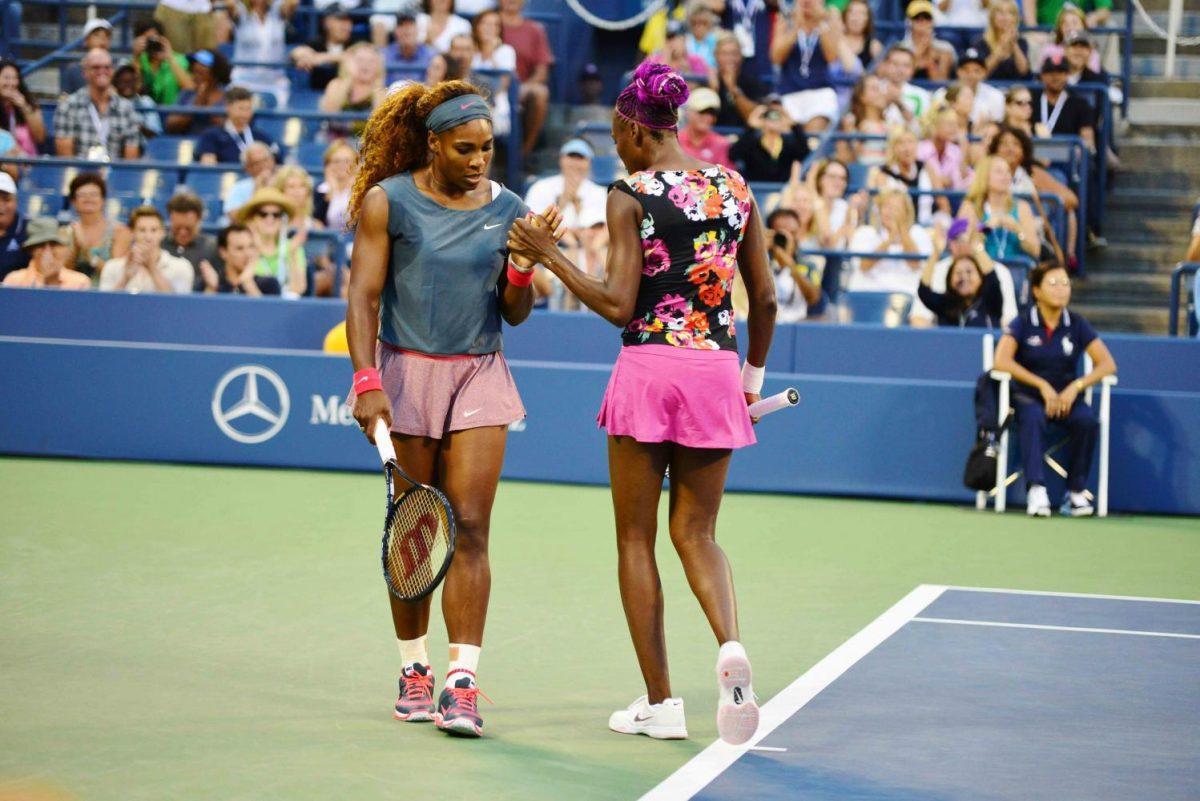What Serena Williams’ Pregnancy Means for Women
Serena Williams won her 23rd Grand Slam while pregnant; silencing critics and exceeding expectations
September 25, 2017
Tennis is traditionally a sport dominated by white males and attended by the white elite. Serena Williams diverges from the mold of the traditional player, and her audience does as well. While she is one of the greatest tennis players of all time, she still faces discrimination on and off the court for her race, gender and body. She is black excellence in the flesh, yet people still maintain their doubts about her. Because of her differences, people downplay her capabilities, talent and prowess, which they believe she derives from her so-called manly gure, bringing in their racist and sexist beliefs on black women. They end up disregarding the effort Williams puts into the sport because perhaps the thought of a black woman being the top tennis player is an idea that is too hard to bear. This year, Williams revealed that she was pregnant. Naturally, this sent ripples through the tennis community and had major implications for feminism in the sport and Williams’ legacy as a player.
To understand her pregnancy, we must first understand the player herself. She is a woman of strength, not just in the physical sense. Each year she faces critics of her race and gender, bad calls on the tennis court and an even harsher crowd at times. Through all the hardships, she has remained a champion, defeating opponents on the court, as well as racists and sexists in press conferences. This time around, with the news of the baby, she has had to emulate that strength in different ways, in one that can prove to those critics that she, and women in general, are powerful and ought to be respected. When competing for her 23rd Grand Slam, Williams was almost two months pregnant. Playing with that knowledge, Williams had to focus on competing and not on the baby’s potential impacts on her performance. Furthermore, while athletes tend to retire as they age and start families, Williams, at 36, still intends to return for the 2018 season after just less than a year of maternity leave. Her determination in this field is unmatched and represents a strong feminist attitude. Commenting on her decision to return to touring, Williams told CBS’s Gayle King, “I’m not done yet. My story isn’t over,” as pregnancy will not stop her from keeping her title as number one.
Williams’ ability to win her 23rd Grand Slam while pregnant silenced traditional critics claiming that pregnancy inhibits a woman’s ability to perform basic, much less physically grueling tasks. Pregnancy, even in the early stages, greatly affects a woman’s body, so Williams’ tenacity showcases to women everywhere, particularly athletes, that being a woman should not stop anyone from doing her job. There is often a stigma surrounding women’s bodies — that they are weaker because they menstruate or because they can carry children, but Williams has shown us otherwise. She is a harbinger of change for the acceptance of women as equals in sports because no one stops the world’s number one from taking her 23rd Grand Slam.
A version of this article appeared in the Monday, Sept. 25 print edition. Email Helen Xie at [email protected].
























































































































































